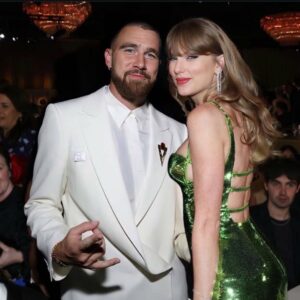
Tech billionaire Elon Musk is once again at the center of controversy—this time for a comment directed at pop sensation Taylor Swift. Musk’s remark, which many have labeled as vulgar and misogynistic, has sparked outrage among Swift’s fans, leading to calls for him to be “canceled” on social media platforms. The incident underscores the ongoing tension between public figures who wield significant influence online and the importance of respectful discourse in today’s digital age.
The Comment That Ignited the Controversy
The backlash began after Taylor Swift made headlines by endorsing Kamala Harris for the 2024 U.S. presidential election. In a heartfelt social media post, Swift described Harris as a “steady-handed, gifted leader” and humorously signed off as a “Childless Cat Lady,” a nod to her love for cats and a light-hearted jab at societal expectations of women.
However, Musk’s response to Swift’s post crossed the line for many. He wrote on X (formerly Twitter), “Fine Taylor… you win… I will give you a child and guard your cats with my life.” What might have been intended as a playful or flirtatious remark was widely interpreted as inappropriate, demeaning, and dismissive of Swift’s message.
Social Media Erupts
Swift’s loyal fanbase, known as “Swifties,” quickly mobilized, flooding social media with criticism of Musk. Tweets calling him “vulgar” and “disgusting” trended across platforms, with many demanding that he face consequences for his behavior.
One Twitter user wrote:
“Imagine posting a thoughtful endorsement about political leadership, and a billionaire responds by suggesting he’ll impregnate you. Disgusting.”
Another added:
“Elon Musk’s comment isn’t just offensive—it’s a reflection of how women in power are often treated. Instead of engaging with her ideas, he reduced her to a joke about motherhood. Shameful.”
Broader Implications
The incident has reignited conversations about misogyny and the treatment of women in the public eye. Many critics argue that Musk’s comment exemplifies a broader societal issue: the tendency to undermine or objectify women, especially those who are successful and influential.
Public figures and celebrities also weighed in. A prominent feminist activist tweeted:
“Taylor Swift has worked hard to carve out her space as a powerful voice in the entertainment industry. Musk’s comment wasn’t just disrespectful—it was a blatant attempt to diminish her achievements.”
Others noted the irony of Musk’s position as a leading figure in the tech world, an industry already grappling with issues of gender inequality and workplace harassment.
A Pattern of Controversy
This isn’t the first time Elon Musk has faced backlash for his social media behavior. Known for his unfiltered and often provocative tweets, Musk has frequently found himself in hot water. From making off-color jokes to engaging in public feuds, the Tesla and SpaceX CEO’s online presence is as polarizing as it is influential.
However, critics argue that this latest incident is different. “It’s one thing to make a joke that falls flat,” said a media analyst. “It’s another to make a comment that perpetuates harmful stereotypes and dismisses a woman’s autonomy and achievements.”

Silence from Swift
As of now, Taylor Swift has not publicly responded to Musk’s comment. Known for her carefully crafted public image and strategic use of social media, Swift’s silence may be a deliberate choice to avoid giving the comment more attention.
Her fans, however, have been anything but silent. The hashtag #CancelElon trended on X, with users calling for boycotts of Tesla and other Musk-owned ventures.
What’s Next?
While Musk has yet to issue an apology, the incident raises important questions about the responsibilities of public figures in online spaces. With millions of followers and an ever-expanding influence, comments like Musk’s have a far-reaching impact, shaping public discourse and, in some cases, reinforcing harmful narratives.
For many, this controversy is a reminder that words matter—especially when they come from someone as influential as Elon Musk. As social media continues to be a powerful tool for communication and activism, the expectations for respectful and thoughtful engagement are higher than ever.
Whether Musk will face any long-term consequences remains to be seen. However, one thing is clear: Swifties are not backing down, and the conversation about respect, power, and gender in the digital age is far from over.





